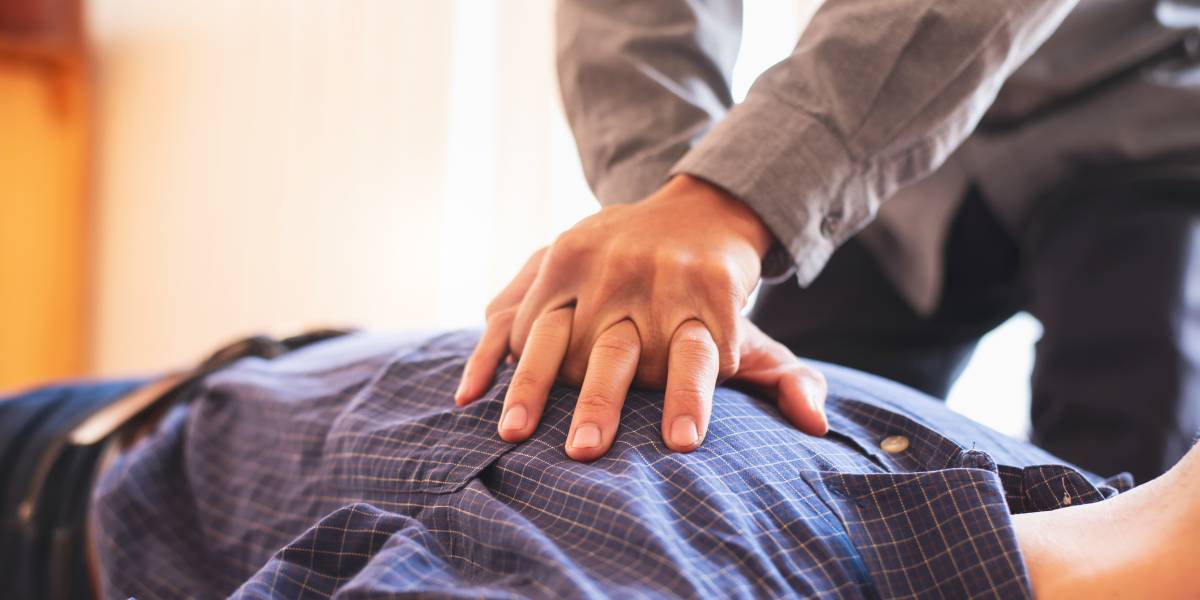Around half of the British population are not certain that they can correctly perform CPR to somebody having a cardiac arrest, new data shows.
Every year, approximately 30,000 cardiac arrests occur in the community, with most of these cases happening at home.
Survey findings by the British Heart Foundation have revealed that nearly 50%of people living in the UK have said they would not be able to deliver the lifesaving procedure.
More than 4,000 people filled in the survey, which has identified that 33 per cent of the participants have never been taught cardiopulmonary resuscitation (CPR).
A cardiac arrest happens when the heart stops pumping blood around the body. Someone suffering from a cardiac arrest will collapse, stop breathing and will quickly turn grey.
According to the research, less than one in 10 people survive a cardiac arrest, mainly because their loved ones are not able to confidently perform CPR.
Prior studies have found that CPR and defibrillator machines can double an individual’s chance of surviving.
During cardiac arrest, the heart cannot pump blood to the rest of the body, including the brain and lungs.
Chest compressions performed in CPR impersonates the pumping motion of the heart to help keep the blood circulating throughout the body.
The British Heart Foundation has described CPR as the “most important lesson you can ever learn”.
- Heart-related deaths caused by extreme weathers, evidence suggests
- Heart complications and bad mental health combatted by yoga
Training resources are available on the charity’s website to teach people how to perform CPR in as little as 15 minutes.
Chief executive of the British Heart Foundation, Dr Charmaine Griffiths said: “Every second counts when someone has a cardiac arrest and knowing CPR could be the difference between life and death.
“A cardiac arrest can happen to anyone at any time – it could be your partner, your mum or dad or your child.”
She added: “Our survey shows that too many of us still haven’t learned CPR and wouldn’t have the confidence to step in if the worst should happen.
“It only takes 15 minutes to learn with RevivR – that’s a coffee break, half time in the football or the time you might spend scrolling through social media. I urge you to do it today, as it could be the most important lesson you ever learn.”






